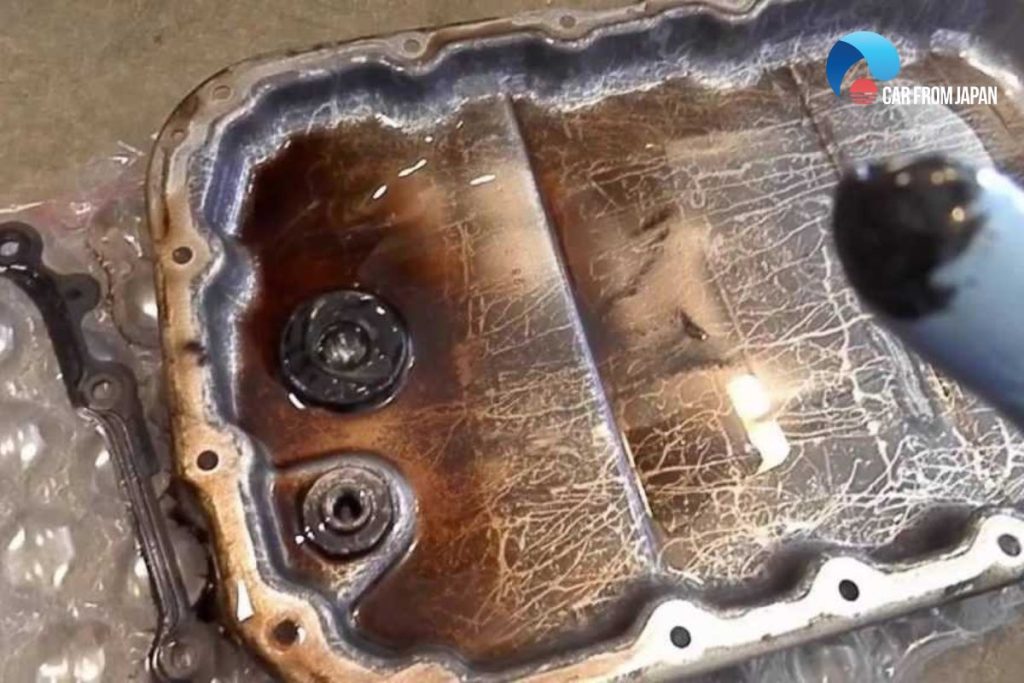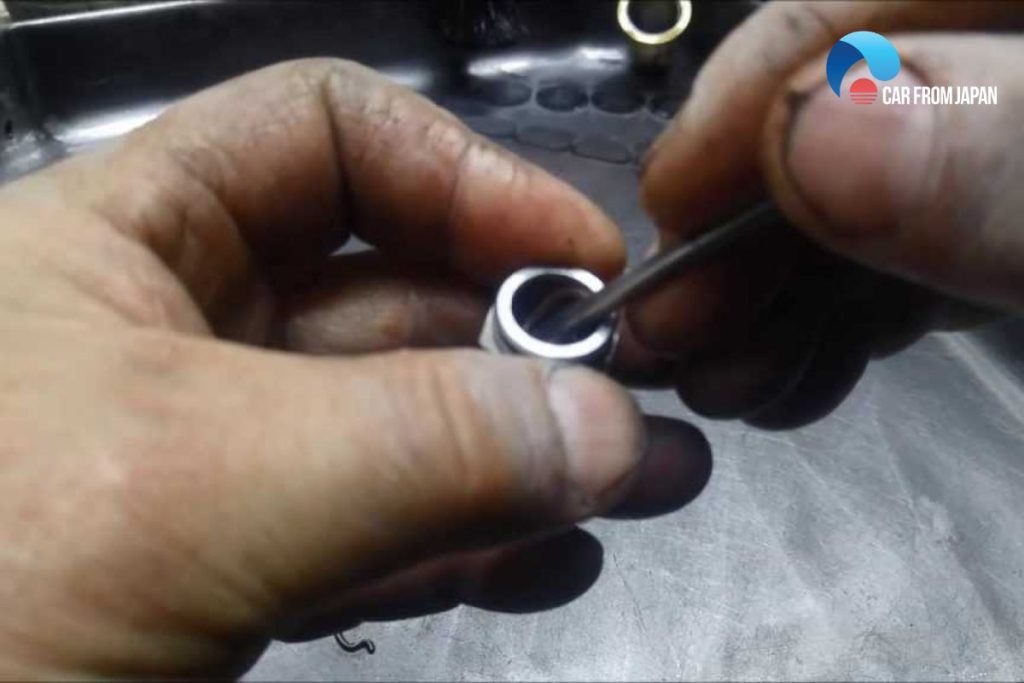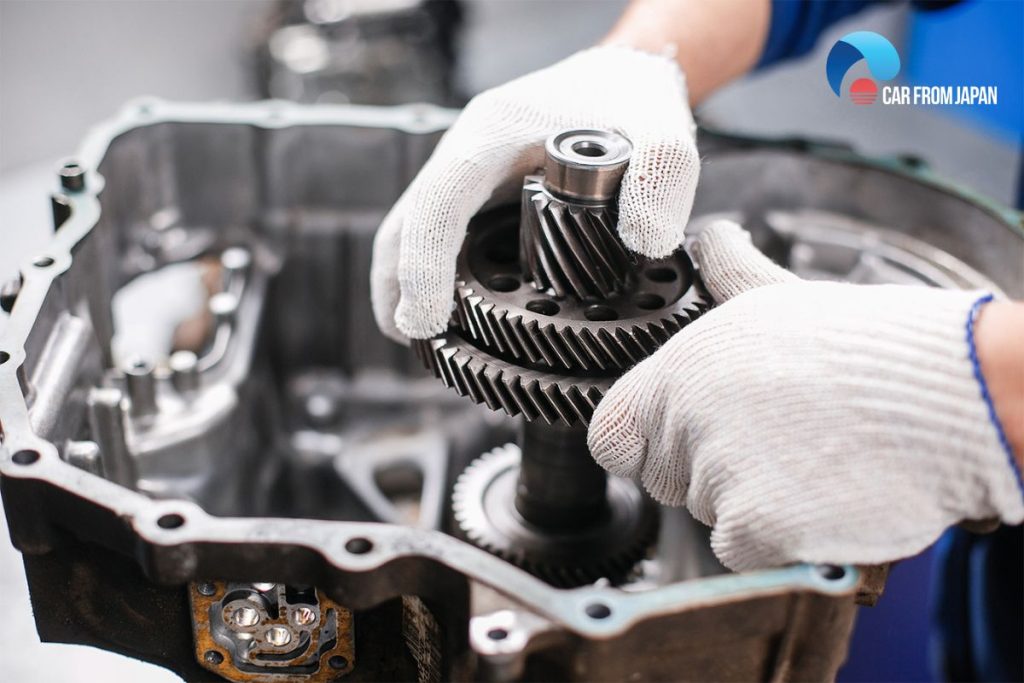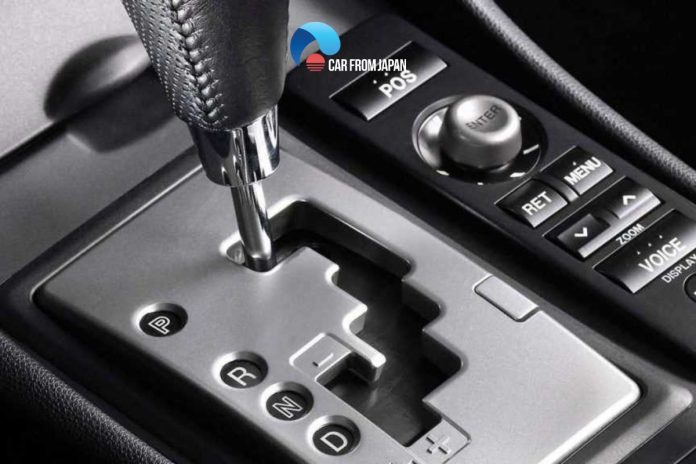The mechanism of an automatic transmission is complicated and it takes time, money, and expertise to solve if there is any problem with this component.
One such complex issue is auto transmission shifting hard from 1st to 2nd gear. Even experienced mechanics struggle to find out the exact reasons for this problem.
Contents
- Common Reasons For Transmission Shifting Hard from 1st to 2nd
- What Can You Do To Deal With The Transmission Shifting Hard From 1st To 2nd Gear?
- FAQs on The Transmission Shifting Hard
- What role does transmission fluid play in smooth shifting?
- Can a clogged transmission filter cause hard shifting?
- Is hard shifting always a sign of a serious transmission problem?
- How can I address hard shifting from 1st to 2nd gear?
- Can a transmission flush help with hard shifting?
- Is hard shifting covered by my vehicle’s warranty?
- The Final Words
Common Reasons For Transmission Shifting Hard from 1st to 2nd
The shifting hard problem can persist even after replacing the fuel filter and pressure control solenoids.
Sometimes, it happens when the engine is cold and you try to kick it off right away without warming up first.
Why does the auto transmission behave this way? Here are a few reasons and solutions for transmission shifting hard from 1st to 2nd.
Dirty Transmission Fluid
The fluid gets dirty over time and when it does, it causes plenty of troubles. Hard shifting is one of them. If the color is dark brown or burnt, changing it is likely to solve this issue.
There is a recommended schedule in the owner’s manual for changing the fluid.
However, if the fluid changes its color too often, the transmission is wearing quicker than the normal rate.
It could be a bad bearing or clutch, so check those components if you need to change the fluid often.

Low Fluid Level
Fluid can get below the normal level due to a leak somewhere in the pan gasket or input and output shaft seals.
Replacing these seals can be expensive because of their location inside the transmission. Rather, use a transmission sealer to repair the cranked or shrunk gasket or seals.
It is a hassle-free, less expensive solution that remains in the system until the next fluid change.
See More: Effective Car Transmission Maintenance Tips
Bad Components
Another reason for transmission shifting hard from 1st to 2nd is some components gone bad.
It could be a cracked o-ring or a broken spring on the piston. Replacing them is the easiest way to bring the gearbox back in order.
To replace these components, you have to drop the pan and gasket. There is a cap on the right side of the transmission.
Detach the cap by removing the bolts attached to it. Then, remove the valve body. If the transmission’s black seal is already damaged or broken, you have to replace it.
The cap has a piston and a spring. Check their condition and the piston seal for any damage. If yes, replace them. If they are fine, go on and inspect the second spring in the valve.
Clean or change this spring and put all the components back together to reassemble the transmission.
If you have not changed the fluid and replaced the filter already, do that while changing these parts. Otherwise, just keep the filter in a bag while changing the o-ring or spring and then reinstall it.

Worn synchronizers (Manual transmissions)
In manual transmissions, synchronizers match the speed of the input shaft (connected to the engine) and the output shaft (connected to the wheels) before engaging a gear.
Worn synchronizers can prevent smooth gear changes, leading to grinding, difficulty shifting, or a noticeable “clunk” when shifting, especially from 1st to 2nd gear, as this is a frequent shift.
Replacing worn synchronizers typically requires disassembling the transmission, making it a labor-intensive repair.
Double-clutching or rev-matching techniques can sometimes help compensate for worn synchronizers, but ultimately, replacement is the proper solution.
Low clutch fluid
The clutch uses hydraulic fluid to operate in manual transmissions. Low clutch fluid can make it difficult to disengage the clutch fully, leading to difficulty shifting or grinding gears, particularly when shifting from 1st to 2nd.
Low clutch fluid often indicates a leak in the clutch hydraulic system. Check the clutch fluid reservoir regularly and top it off as needed.
If the fluid level drops frequently, inspect the system for leaks.
Shift linkage or cable issues
The shift linkage or cable connects the gear shifter to the transmission.
A damaged linkage or cable can make it difficult to select gears accurately, resulting in difficulty shifting or missed shifts.
Symptoms of linkage or cable problems include difficulty engaging gears, a loose or sloppy feeling shifter, or the inability to select gears.
Adjusting or replacing the linkage or cable can often resolve these issues.
Computer or sensor problems (Automatic transmission)
Modern automatic transmissions rely on various sensors and computer control modules to manage shifting.
A malfunctioning sensor can send incorrect signals to the transmission control module (TCM) and lead to harsh shifting.
Problems with the TCM can also cause shifting issues. So be sure to diagnose computer or sensor problems and consult a qualified mechanic.
Internal transmission damage
In some cases, hard shifting, particularly between 1st and 2nd gear, can indicate more severe internal damage within the transmission, such as damaged gears, bearings, or shafts.
This damage can be caused by wear and tear, lack of maintenance, overheating, or other factors.
Internal transmission damage often requires rebuilding or replacing the transmission, which is a significant repair.
Addressing shifting problems soon can sometimes prevent more severe damage and reduce repair costs later on.

What Can You Do To Deal With The Transmission Shifting Hard From 1st To 2nd Gear?
Before getting into the real process and knowing what to do, here are some basic tools you may need if you want to inspect the car yourself initially.
- Basic hand tools: wrenches (metric or standard), sockets and a ratchet, screwdrivers (Phillips and flathead), pliers (including needle-nose pliers), hammer.
- Jack and jack stands
- Wheel chocks (Prevent the vehicle from rolling while it’s jacked up)
- Safety glasses and gloves
- Rags or paper towels
- Funnel
- Transmission fluid (Automatic) / Clutch fluid (Manual)
- Flashlight
- OBD-II Scanner (Automatic)
- Chalk or tape (marking the location of leaks)
- Repair manual
Now the tools are all set, let’s get into the process on how to fix the 1st and 2nd gear hard to shift issue.
Identify the transmission type
The first step is to determine whether your vehicle has an automatic or manual transmission.
This is crucial because the troubleshooting and repair procedures differ significantly between the two types.
Check the fluid (Automatic)
For automatic transmissions, check the transmission fluid level using the dipstick. Ensure the engine is warm and running, and the vehicle is parked on a level surface.
If the fluid is low, add the correct type of fluid as specified in your owner’s manual.
In addition, if the fluid is significantly low, dark, smells burnt, or contains visible particles, it indicates a more serious problem. Then you should meet a professional ASAP to avoid further damages!
Check for leaks
Inspect the area around the transmission and under the vehicle for any signs of leaks.
Look for red or pink fluid (automatic transmission fluid) or clear to slightly amber fluid (manual transmission fluid/clutch fluid).
Inspect the shift linkage (Manual)
For manual transmissions, inspect the shift linkage and cables for any signs of damage, wear, or misadjustment. A loose or damaged linkage can make it difficult to engage gears properly.
If the linkage is damaged or excessively worn, it will need to be replaced.
Listen for noises
Pay close attention to any unusual noises coming from the transmission, such as grinding, clunking, or whining. These noises can provide valuable clues about the source of the hard shifting problem.
Grinding noises during shifting in a manual transmission often indicate worn synchronizers. Whining noises in an automatic transmission might suggest pump or valve body problems.

Try basic adjustments
For manual transmissions, if the clutch pedal feels unusually high or low, or if the shifter feels loose or sloppy, try adjusting the clutch cable or shift linkage.
Consult the repair manual for specific instructions on making these adjustments.
Check for diagnostic trouble codes
For automatic transmissions, use an OBD-II scanner to check for diagnostic trouble codes (DTCs). These codes can provide valuable insights into the cause of the hard shifting problem.
Meet a qualified mechanic
If you’ve tried basic troubleshooting steps and the hard shifting persists, or if you’re uncomfortable working on your transmission, go for a qualified mechanic.
FAQs on The Transmission Shifting Hard
What role does transmission fluid play in smooth shifting?
Transmission fluid lubricates and cools the moving parts inside the transmission while also providing hydraulic pressure to engage the gears.
Low or degraded transmission fluid can lead to hard shifting and other transmission problems.
Can a clogged transmission filter cause hard shifting?
A clogged transmission filter can impede the flow of transmission fluid, leading to a drop in hydraulic pressure.
This can result in hard shifts as the transmission struggles to engage gears smoothly.
Is hard shifting always a sign of a serious transmission problem?
Not necessarily. While hard shifting can indicate transmission issues, it doesn’t always mean a major problem.
It can sometimes be resolved with routine maintenance, such as changing the transmission fluid and filter.
How can I address hard shifting from 1st to 2nd gear?
If you’re experiencing hard shifting, start by checking the transmission fluid level and condition. Ensure it’s at the proper level and not discolored or burnt.
If the fluid is fine, it’s advisable to have the vehicle inspected by a qualified mechanic who can diagnose and address the underlying issue.
Can a transmission flush help with hard shifting?
In some cases, a transmission flush can help improve shifting performance by replacing old fluid with new fluid.
However, you still have to consult with a professional technician to determine if a flush is appropriate.
Is hard shifting covered by my vehicle’s warranty?
Typically, powertrain warranties may cover transmission-related issues.
But you should review your warranty documentation or contact the manufacturer or dealer for clarification!
Check out this video from 1A Auto for more information on bucking or hard shifts!
The Final Words
These are the most common reasons for the transmission shifting hard from 1st to 2nd problem.
However, if fluid changing and replacing these parts don’t solve the issue, you should take the car to a servicing shop for a professional checkup.
For more insightful Car maintenance tips, follow Car From Japan today!



